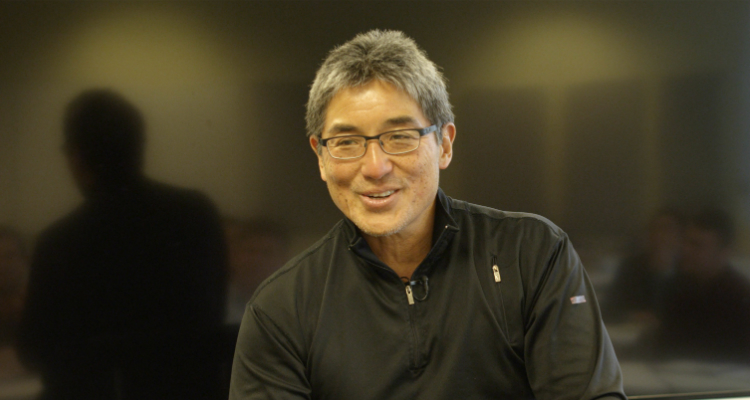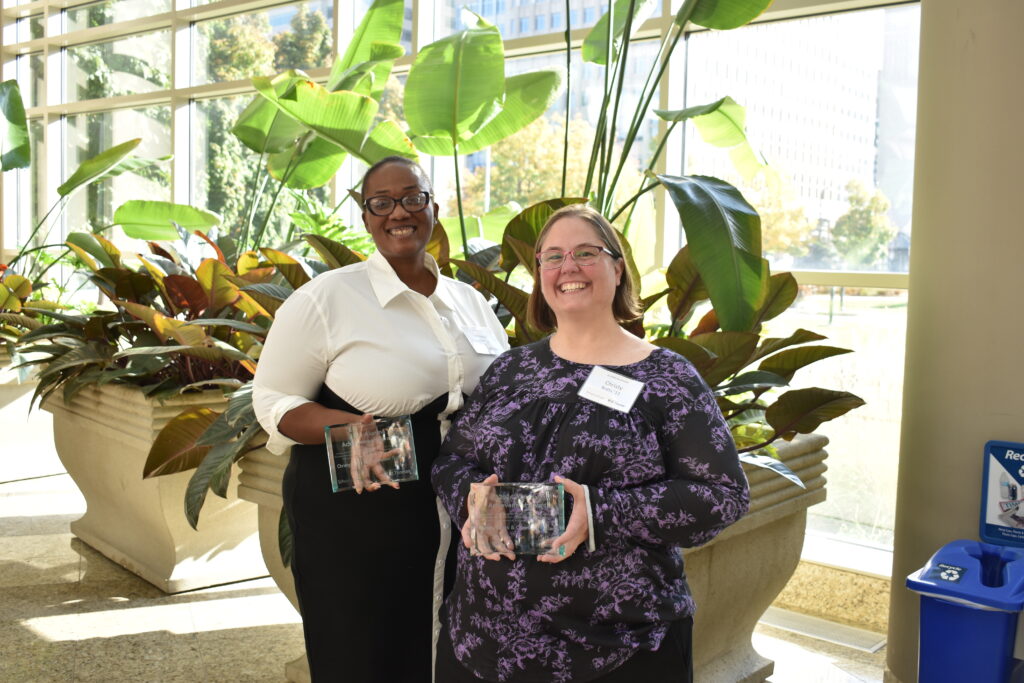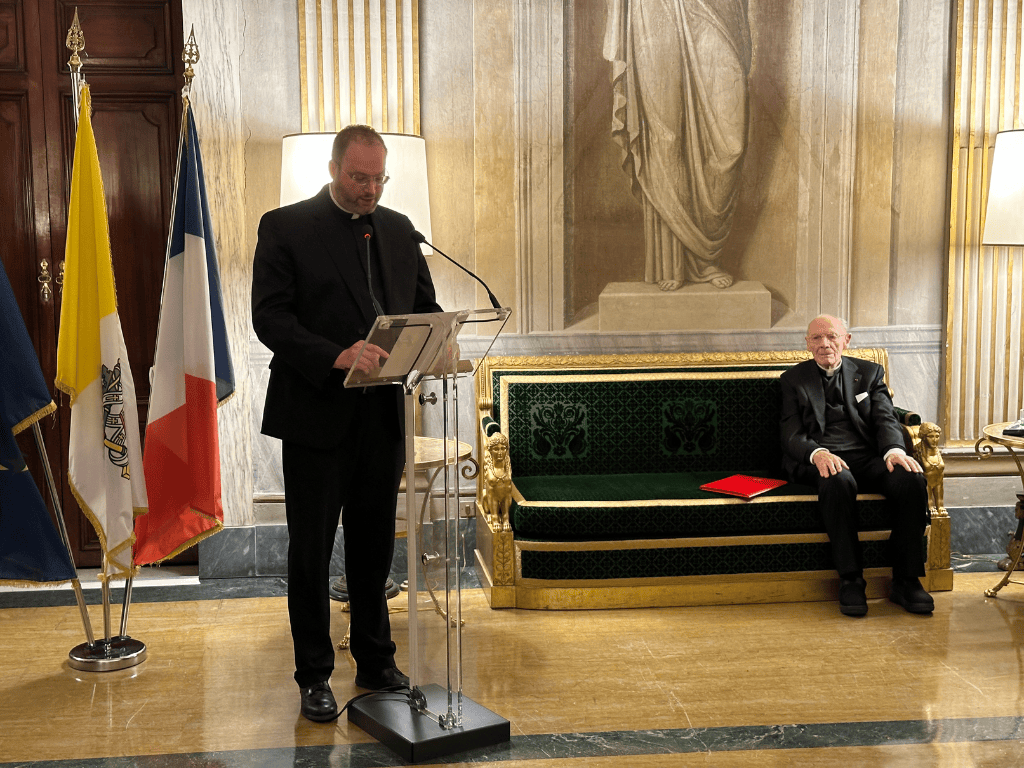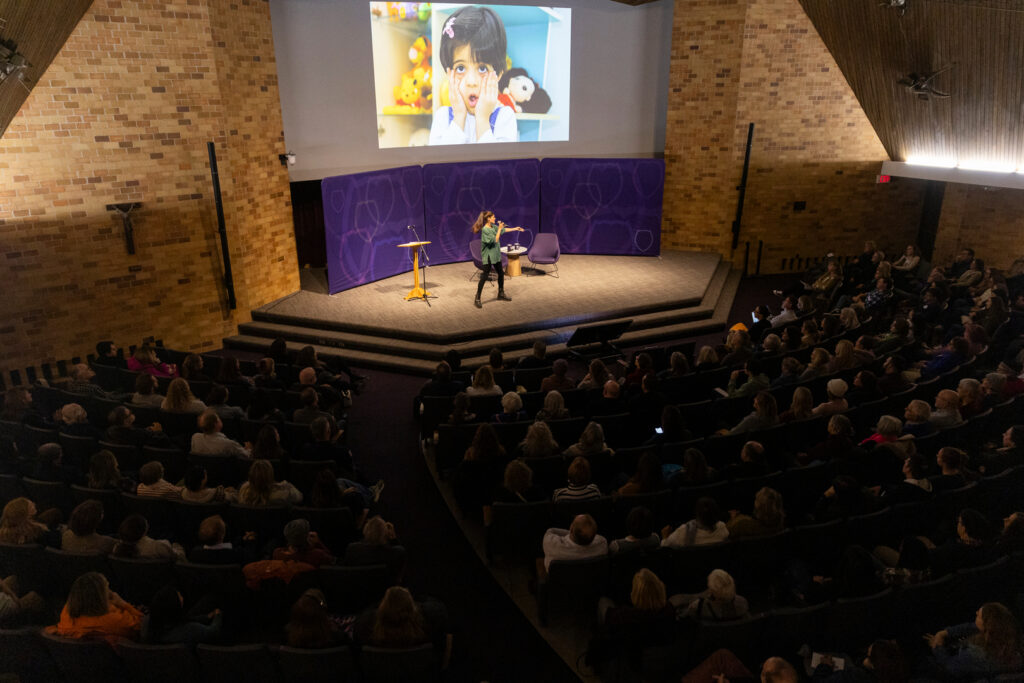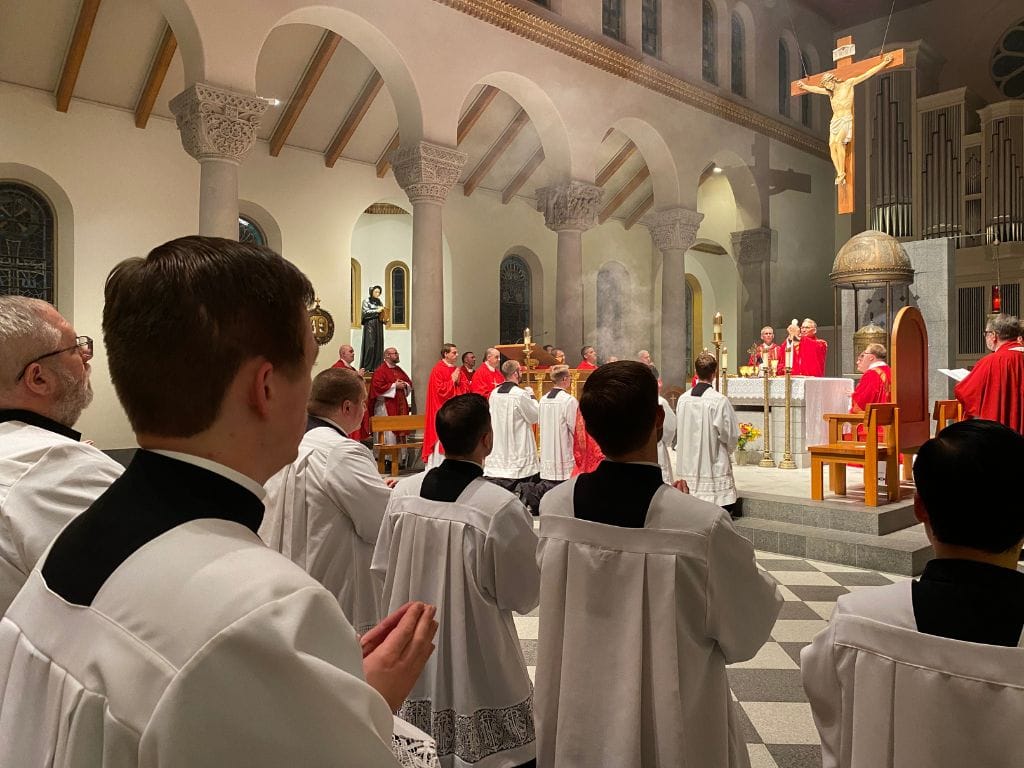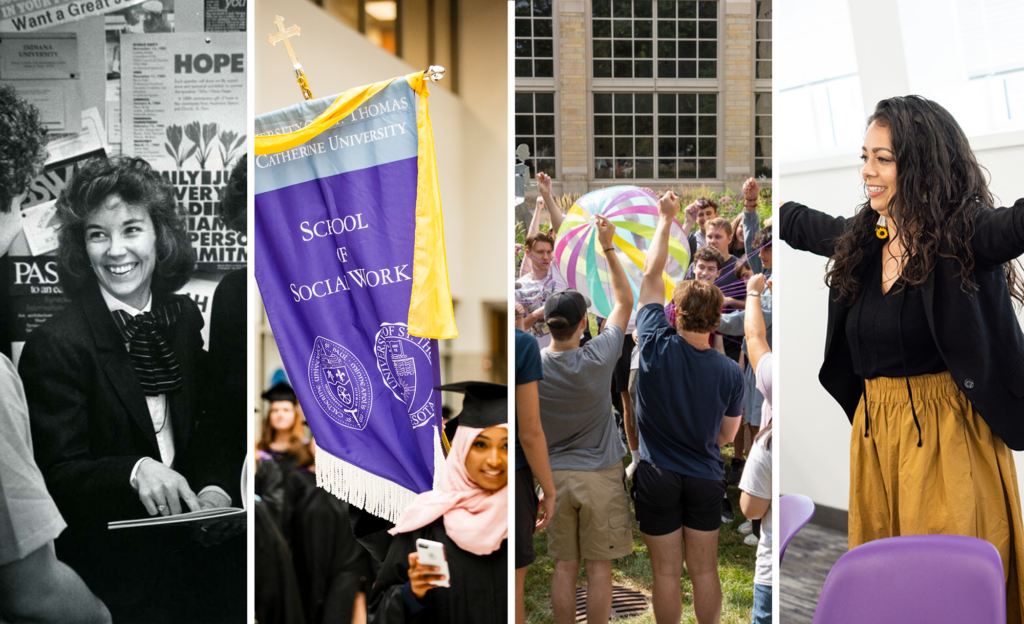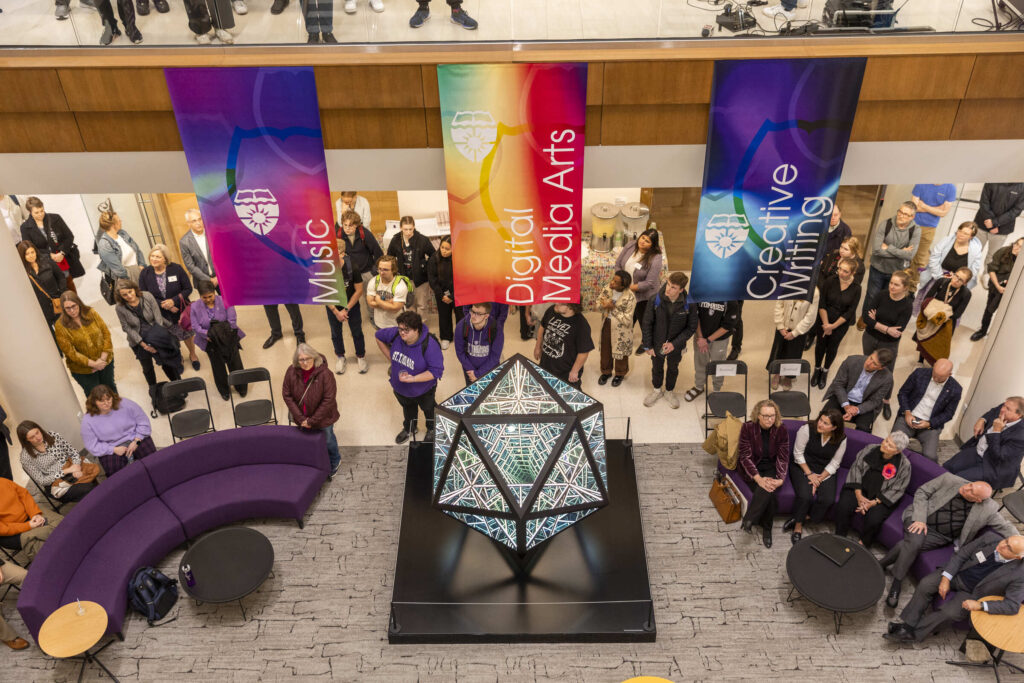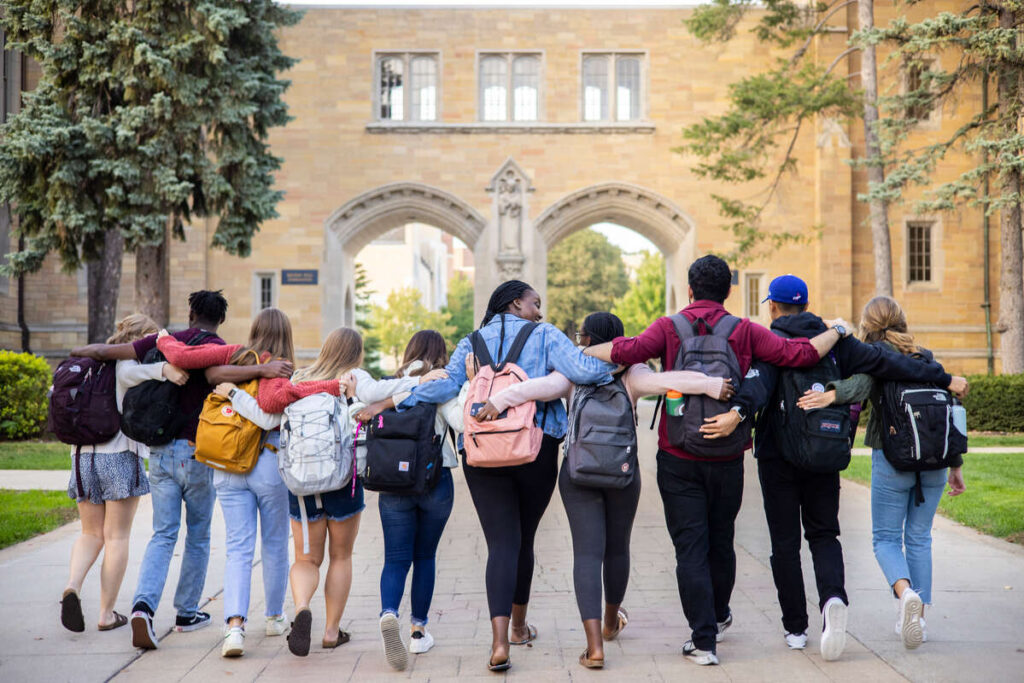For the second year in a row, the University of St. Thomas sent a group of 10 entrepreneurship students to Silicon Valley for a two-week study of innovation in the global hub of entrepreneurship. These students visited many leading Bay Area companies, including AirBnB, GSVlabs, IDEO, Pivotal Labs, Mainsail Partners and AutoDesk. New this year, students had a chance to spend one-on-one time with a group of key entrepreneurial influencers: Guy Kawasaki, chief evangelist at Canva and former chief evangelist at Apple; Hank Barry, partner at Sidley Austin and former CEO of Napster; Michael Moe, chief investment officer and cofounder of GSV Capital; and Mark Moe, VP of Global Development at GSVlabs.
Mark Moe lives and works in the Twin Cities, where he has collaborated on projects with the Schulze School of Entrepreneurship. He gave students a tour and an overview of GSV (Global Silicon Valley) Labs, offering students an understanding of the startup community in Silicon Valley and around the world, and sharing the similarities that exist between the Twin Cities and other entrepreneurial hotspots.
We spoke with two students in the Silicon Valley Immersion course about what they learned working with these key leaders, what life in the Bay is like and if the experience changed the way they are pursuing their futures.
Commentary from Senior Kyle Andrews
On learning from Guy Kawasaki:
I read his book, The Art of the Start 2.0, so I was well-versed in his startup mindset, but I was able to learn more about his other ventures: why he’s part of the Wikimedia board and what made him become involved with Canva.
He shared with us about his time at Apple, and how the company operated almost like a cult, with an us-against-the-world mentality. His ability to rally his team and articulate a shared vision to his team. He made it clear that in order to change the world, as Apple has, there needs to be shared alignment around that vision.
On learning from Hank Berry:
Hank was very methodical, intense and sharp. He delivered a great lesson of what we need to know legally as founders, in a simple and relatable fashion. He also walked us through his time as Napster's CEO, which was fascinating.
I was able to learn exactly what venture capitalists are looking for in deals, two things: exit or initial public offering. Venture capitalists want to put a dollar in and get $20 out. They don’t care how to do it, that’s what they want. Once you take money from one, your trajectory is set. Personally, I don’t see myself wanting to take out venture capital. I want to be able to create a business with a very capital efficient model that allows itself to grow.
On learning from Michael Moe:
Michael thinks big. Yet, he does what is necessary in terms of the small, nitty-gritty work to accomplish large goals. Having spent time with him, it became rather apparent that his way of thinking challenges the boundaries of today. During his presentation, Michael conveyed the message to push current and future entrepreneurs to pursue bold opportunities.
One of my mentors at JAMF Software here in the Twin Cities knows Michael. Michael is very familiar with JAMF and made a comment of how impressive it was to see the company become so capital efficient and that you can bootstrap to find success. That changed my way of thinking how I would want to start a company.
Final thoughts from Kyle:
The world is much smaller than I thought. I mentioned my mentor at JAMF and Michael know one another. Even with Guy and Hank, our associate dean Brian Abraham knows them personally. Whenever there’s something I might need in the future, whether it’s a lawyer or a sales person, or whoever it is, I know that anybody in the world is pre-connected. I can go out through my network and use St. Thomas to find those people. This world is not as big as I think it is.
Commentary from Sophomore Emily Costello
I applied for this course because it sounded like the most intimidating thing I’ve ever done, which is also why it was attractive to me. I really wanted to force myself out of my comfort zone so I could see what I am capable of doing.
Specific Skills Set:
One of the things that stuck with me the most from this trip is just how important it is to have very sound skill sets. Typically when you hear of people starting a businesses, they have a strong interest, are hard working, have a little bit of business acumen and enough passion to make it happen. In Silicon Valley, to make those specific businesses come to life you need defined skills in coding, sales, etc., to get your foot in the door.
No Class:
There’s not a class system in businesses in the Bay Area. If you’re a startup you’re regarded as a business. If you’re Facebook or Google, you’re looked up to, but you’re still a business. There’s not as much of a ranking system and I feel that people don’t discriminate against newer businesses. There’s a mindset that’s very different and positive towards entrepreneurship and trying something. I think the mindset has started to change here, going toward that Silicon Valley vibe. We’re starting to turn a new leaf towards innovation.
CODE: Debugging the Gender Gap:
After watching a documentary about the gender gap in Silicon Valley, I learned about the importance of bringing as many perspectives to a business as possible, whether it’s a hospital providing care, or in startups doing code. Even though teams can operate without that balance, it’s more productive to have it. Pinterest is on a mission to hire more women. It wants to find talented females that can code.
It’s also the importance of not labeling skills to be male or female. Don’t say sewing is for girls and coding is for boys. We need to accept that people have different skills that aren’t gender specific. My personal roadblock as a female is to look past certain skillsets tied to gender. It’s still part of culture to label things male or female, but I’m empowered to dig deeper.
Design:
I learned Design thinking in a different way there. Going through design cycles and being fully immersed there, I’ve applied bits and pieces of that to all of my life since I’ve come back. The biggest takeaway is that your solution to a problem isn’t the same as everyone else’s solution to a problem. Being around so many people who are very different than me makes me take notice that everyone comes from a different place and has a different perspective to bring. There’s a lot of value in mixing different perspectives.
